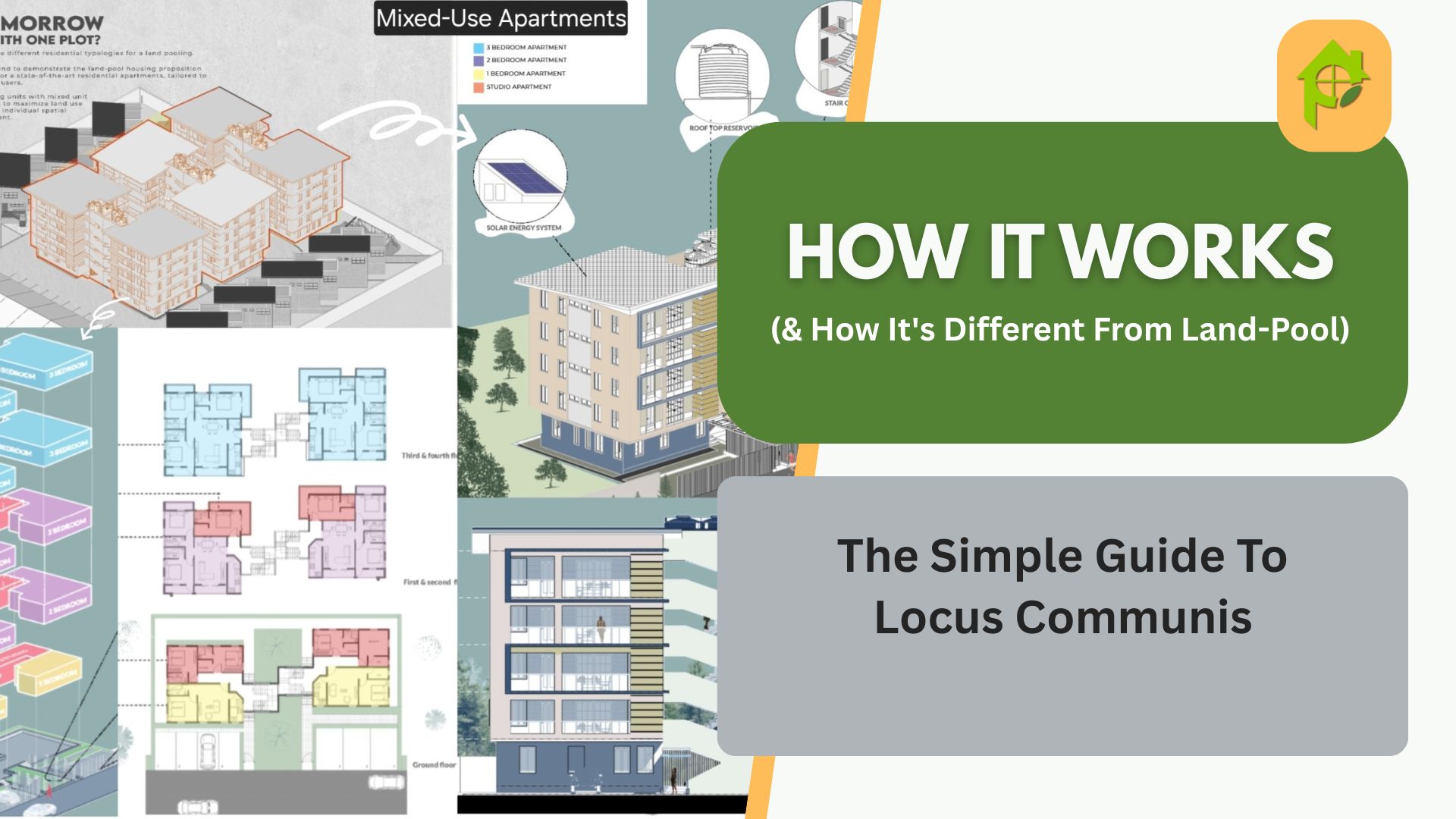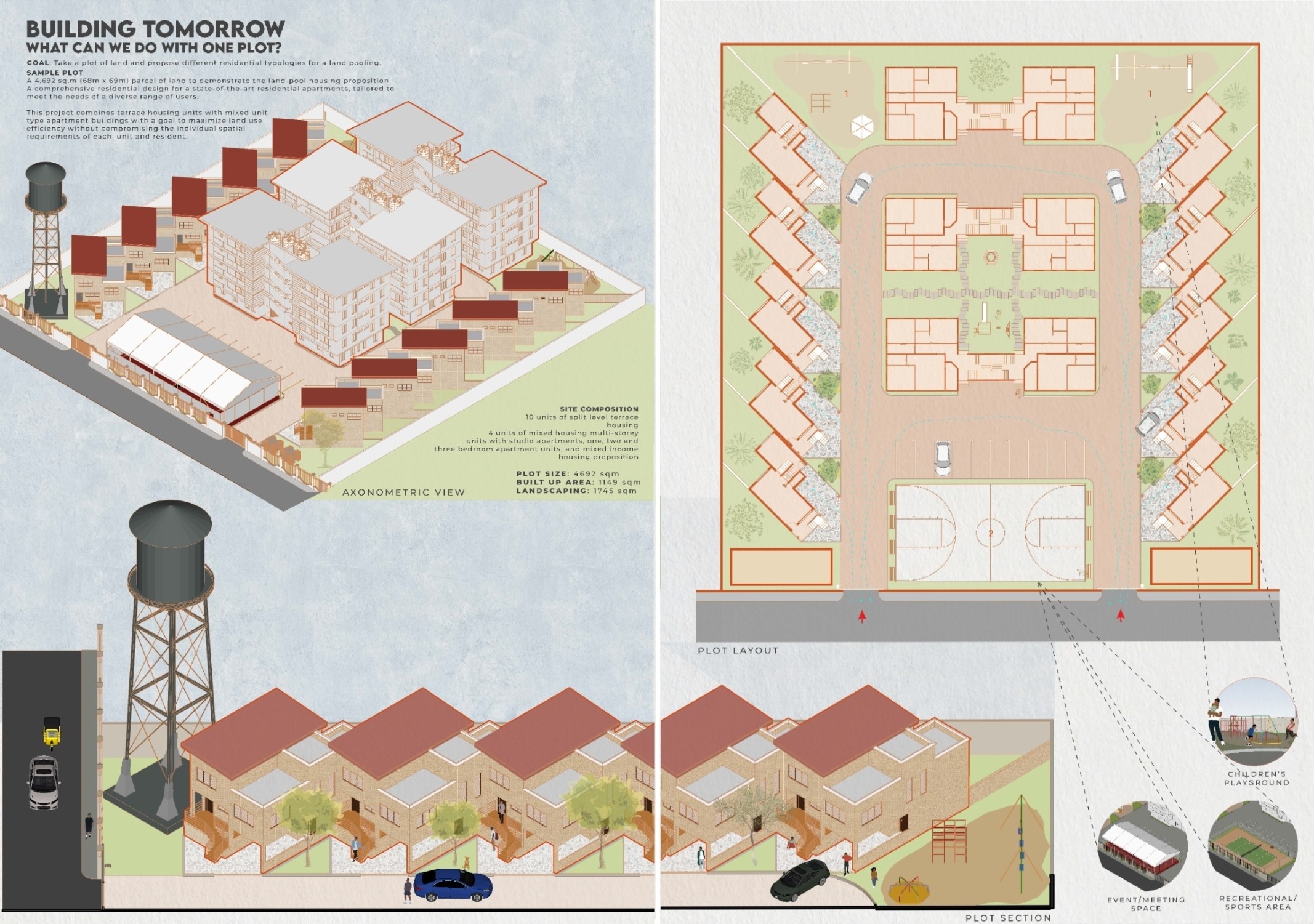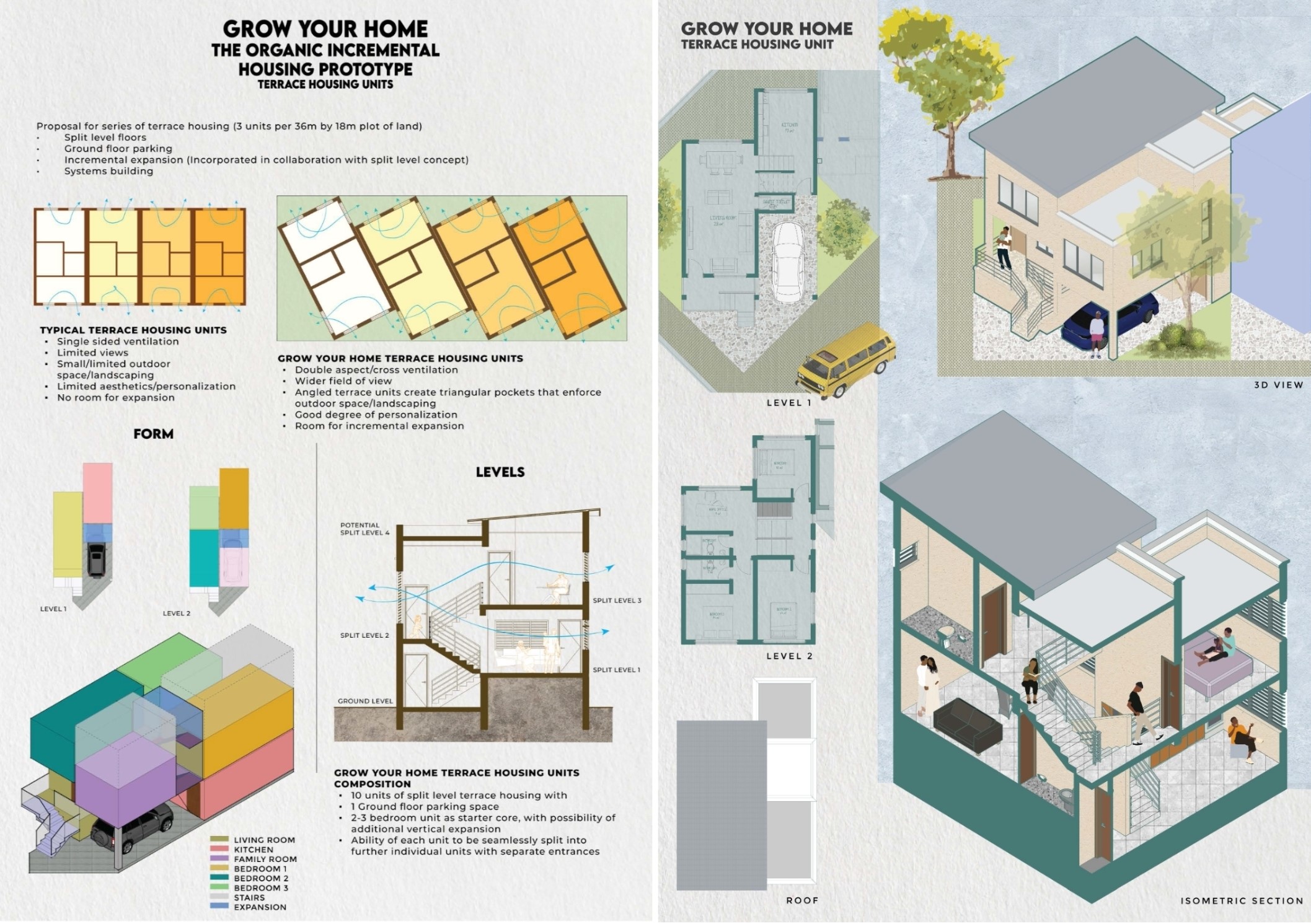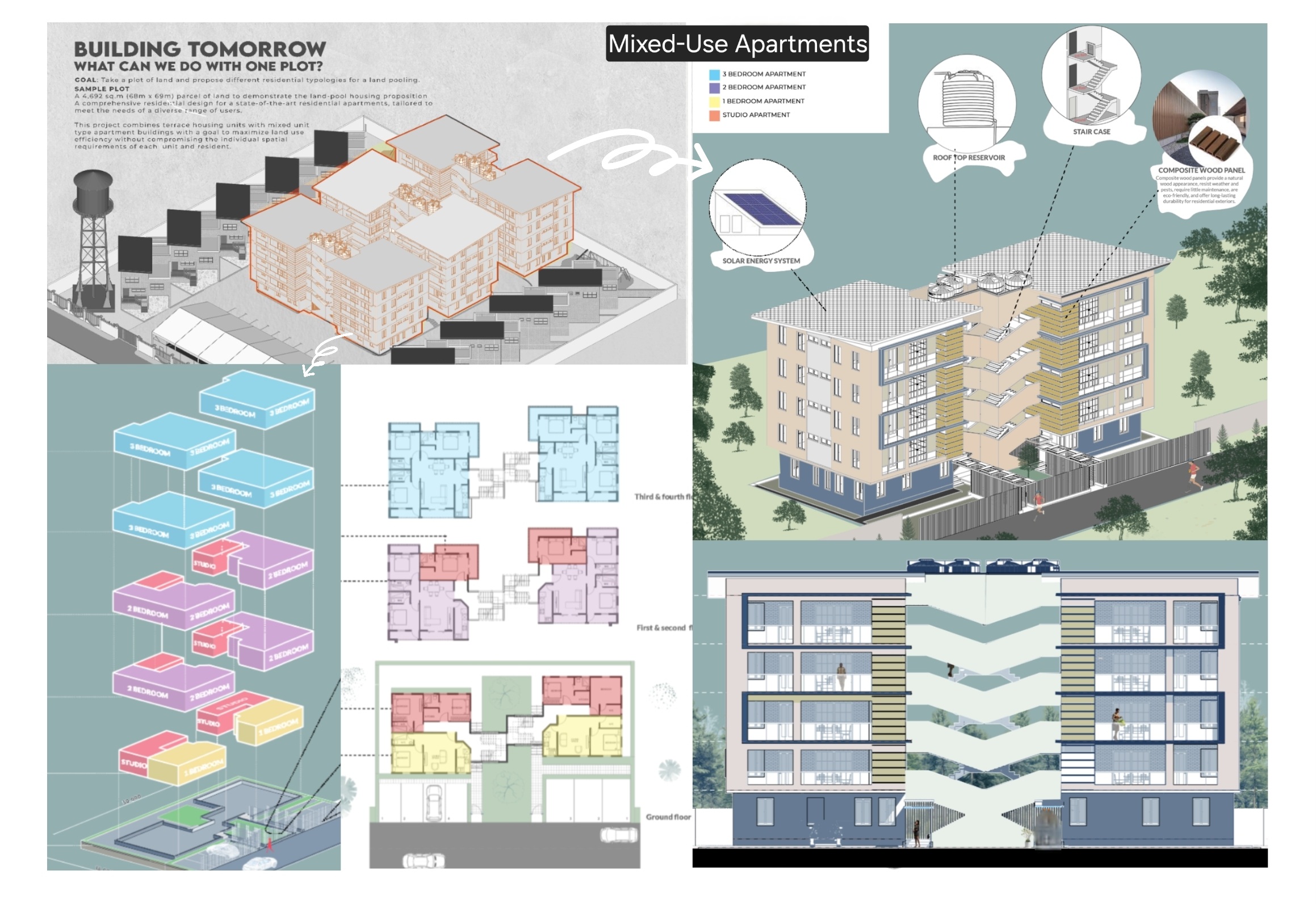
CONTACT US
Affordable Homeownership

SNEAK PEEK
At PetitHaus, everything we do starts with one simple philosophy:
If you own land, it becomes easier to afford housing.
Once you have land, you can decide what to build, when to build, and how to build, whether in stages, with different materials, or at a pace that matches your income. This principle powers both Plot-Share (our co-ownership model) and Locus Communis (our model community housing initiative).
But while they share the same DNA, the scale, flexibility, and outcomes of the two models are very different.
Watch the video below for a detailed breakdown; it includes images and illustrations. The video makes more sense if you've actually gone through the Locus Communis presentation.
Explore more details, and even download the Locus Communis proposal (worth tens of millions) for free.
How it works:

Key features:
Think of Plot-Share as a “first-level affordability hack,” a practical way to break into land ownership without the full financial burden.
Where Land-Pool works for one plot and a handful of people, Locus Communis scales up the idea to an entire neighbourhood.

Two Housing Options:


Think of Locus Communis as the “next-level evolution” of building a planned, affordable, sustainable community together.
Feature Plot-Share Locus Communis
Scale 4–6 families 30–50 families
Land Size 1 plot 1 acre (≈8 plots) or more
(≈500–1,000 sqm)
Housing Individual terraced Terraces & Mixed
Type builds Housing (planned layouts)
Flexibility Full freedom to Terraces = flexible
design & build Mixed Housing = follow uniform design
Community Minimal (limited Shared amenities, courtyards,
Features to small compound) gardens, sports/play areas
Cost Shared across Spread wider, with
Distribution 4–6 people additional options for affordability
Outcome 4-6 Individual A full-fledged model
homes on a plot neighbourhood
In Lagos, where land prices skyrocket faster than incomes can grow, the old dream of buying a plot and building alone is increasingly unrealistic.
Together, they form a pipeline for owning high-quality homes (on a budget) where:
- Individuals can start small with L.Plot-Share
- Communities can scale up into a sustainable lifestyle with Locus Communis.
In summary: Both make land ownership possible. Both make homeownership sustainable.
01.

02.
Category
Discover insights into creating affordable homeownership with PetitHaus.
